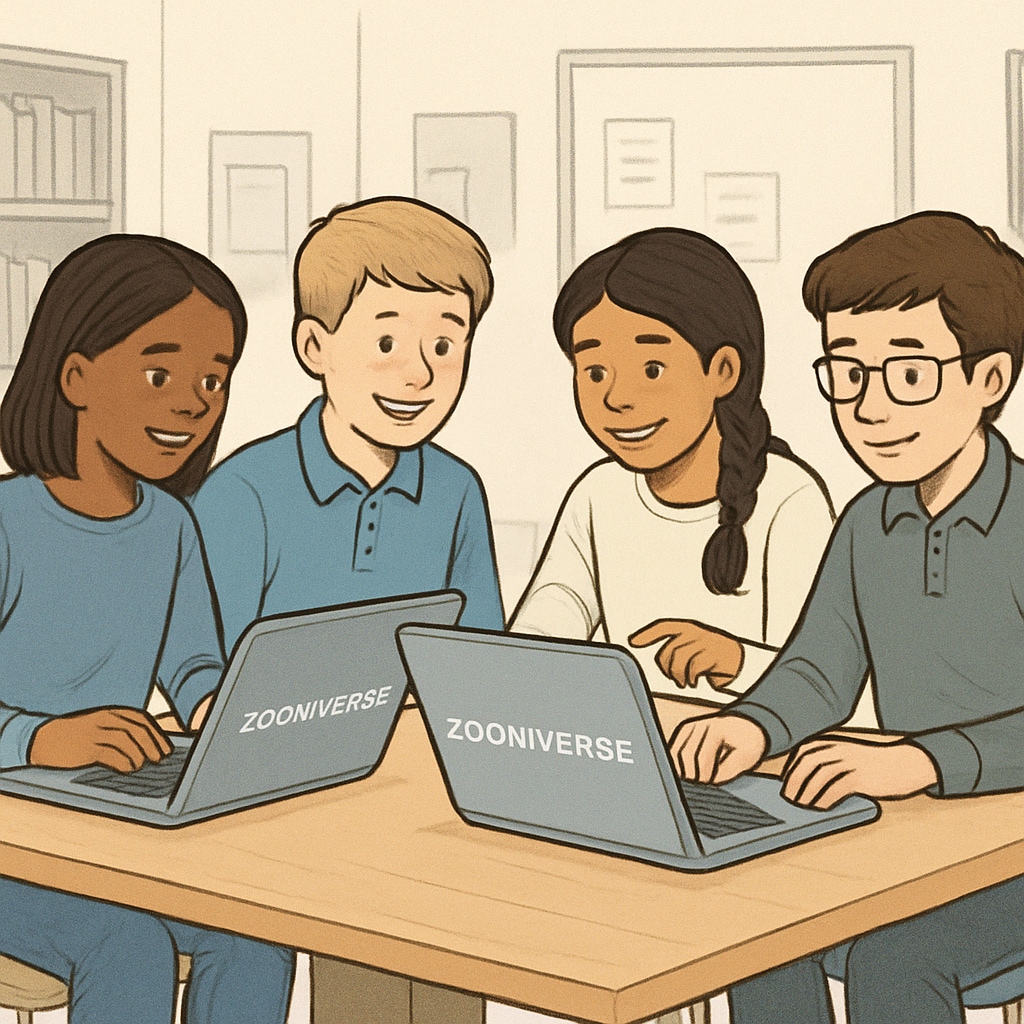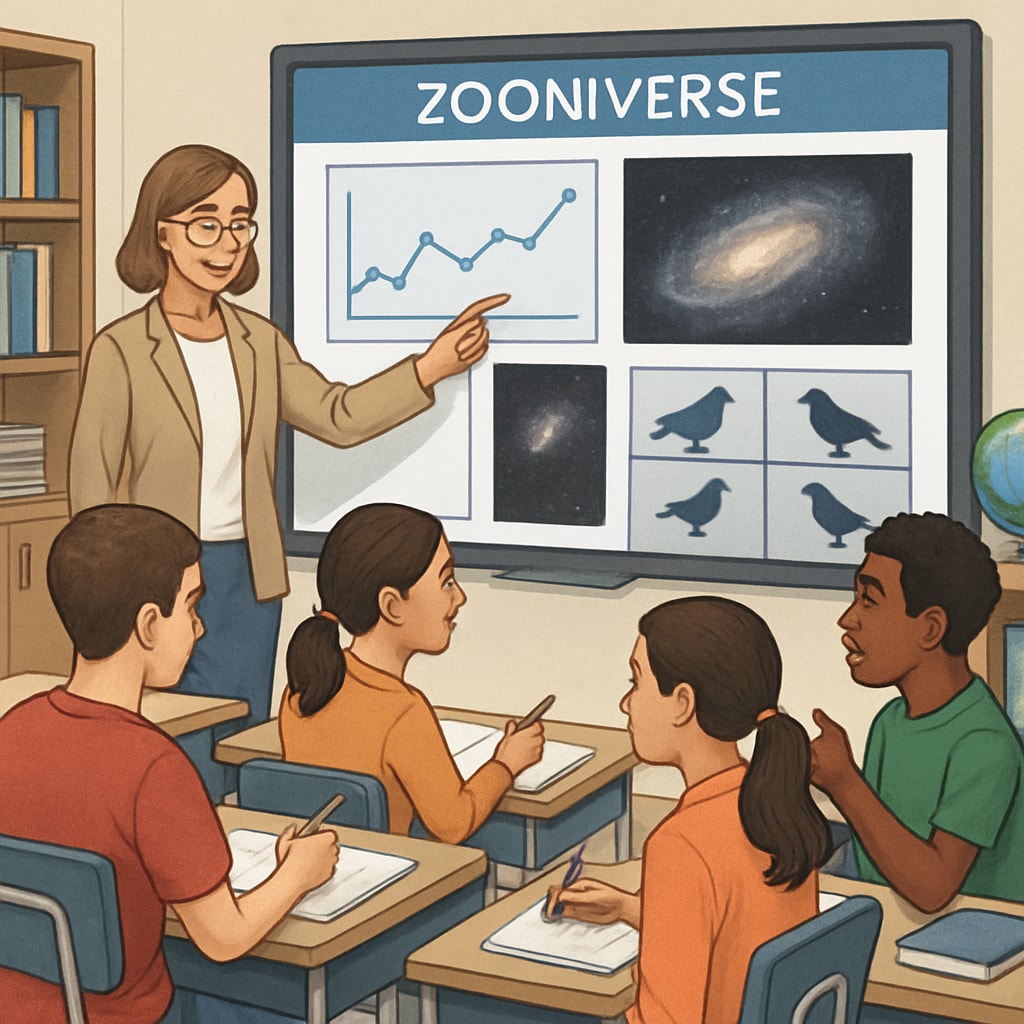In today’s rapidly evolving educational landscape, platforms like Zooniverse are reshaping the way we approach STEM education. As the world’s largest citizen science platform, Zooniverse offers K12 students the unique opportunity to contribute to authentic scientific projects, bridging the gap between classroom learning and real-world research. By introducing students to active scientific inquiry, Zooniverse empowers them to develop critical thinking skills and a deeper understanding of scientific concepts while fostering civic responsibility.
Why Citizen Science Matters in K12 Education
Citizen science, defined as the participation of non-professional individuals in scientific research, has gained traction as a powerful tool for education. For K12 students, engaging in citizen science projects provides hands-on experience with scientific methods, data analysis, and problem-solving. Platforms like Zooniverse make this possible by offering projects across diverse fields, including astronomy, ecology, history, and medicine.
For example, students can classify galaxies in the Galaxy Zoo project or identify endangered species through Snapshot Serengeti. These activities not only enhance their STEM skills but also allow them to contribute to global scientific research. As a result, students feel empowered, knowing their efforts have a tangible impact.

Integrating Zooniverse into the Classroom
Teachers can seamlessly incorporate Zooniverse into their STEM curriculum to create a more engaging and interactive learning environment. Here are some practical strategies for integration:
- Select age-appropriate projects: Choose Zooniverse projects that match students’ cognitive abilities and interests. For younger students, simpler tasks like identifying animal species may be ideal, while older students can tackle more complex data analysis projects.
- Create collaborative groups: Encourage teamwork by assigning students to small groups where they can discuss findings and share insights.
- Connect lessons to real-world issues: Use Zooniverse projects to highlight pressing global challenges, such as climate change or biodiversity loss, and discuss how science can address these problems.
- Track student progress: Utilize Zooniverse’s tools to monitor individual contributions and provide feedback, helping students understand their impact on larger scientific efforts.
By integrating Zooniverse into classrooms, educators can transform passive learning into active exploration, inspiring students to pursue STEM careers and become informed global citizens.

Fostering a Culture of Scientific Literacy and Civic Engagement
One of the most compelling aspects of Zooniverse is its ability to foster scientific literacy and civic engagement. Through participation in citizen science projects, students learn the importance of evidence-based reasoning, data accuracy, and collaboration. These skills are not only vital for STEM fields but also for making informed decisions in their everyday lives.
Moreover, Zooniverse projects help students understand their role in addressing global challenges. For instance, contributing to climate-related studies or disease research demonstrates the interconnectedness of science and society. This fosters a sense of civic duty and motivates students to actively engage with the world around them.
Learn more about citizen science on Wikipedia to understand its broader implications.
The Impact of Zooniverse on Global Scientific Progress
Since its inception, Zooniverse has enabled millions of users to contribute to groundbreaking discoveries. For example, volunteers have helped identify new celestial phenomena, track endangered species, and transcribe historical documents. These contributions demonstrate the immense potential of citizen science in advancing research that would otherwise require years of effort by professional scientists.
For K12 students, this means becoming part of a global community dedicated to scientific exploration. The experience not only builds confidence but also instills a lifelong appreciation for STEM disciplines.
Explore Britannica’s overview of citizen science for additional insights into its educational benefits.
In conclusion, Zooniverse is a transformative tool for K12 education, offering students unparalleled opportunities to engage with real scientific projects. By integrating citizen science into classrooms, educators can inspire the next generation of scientists, innovators, and informed citizens—all while contributing to the advancement of global research.


